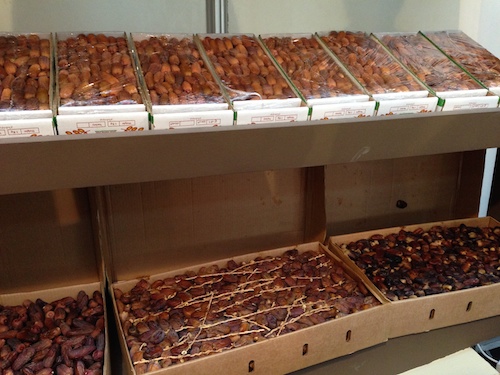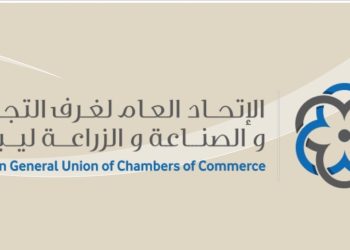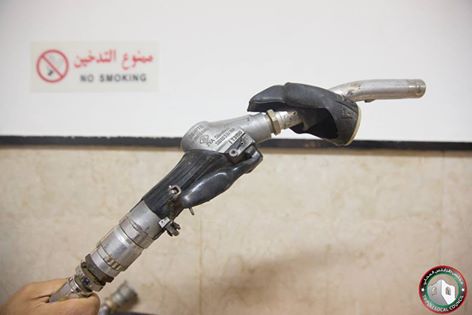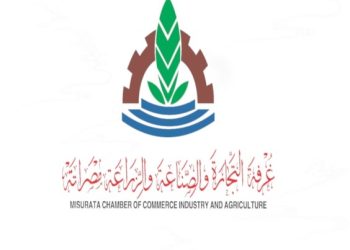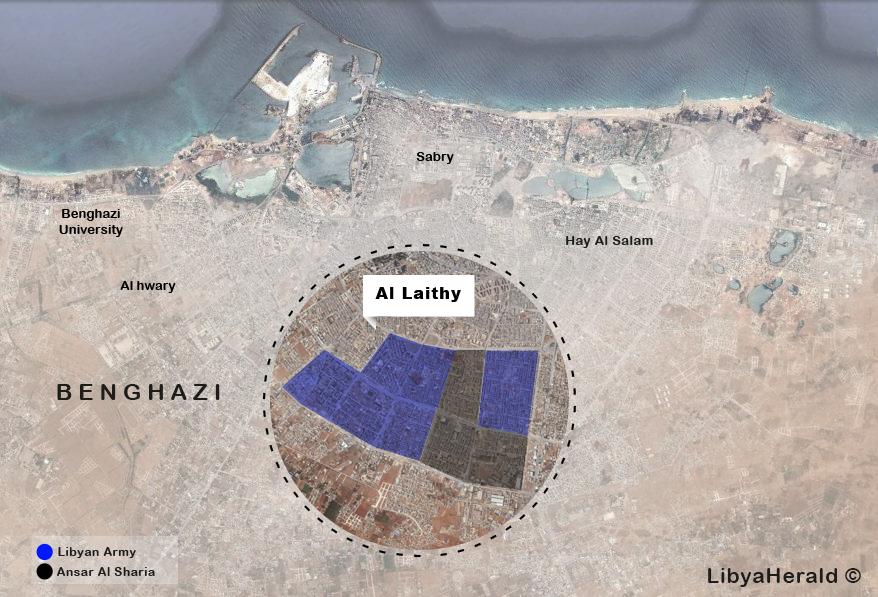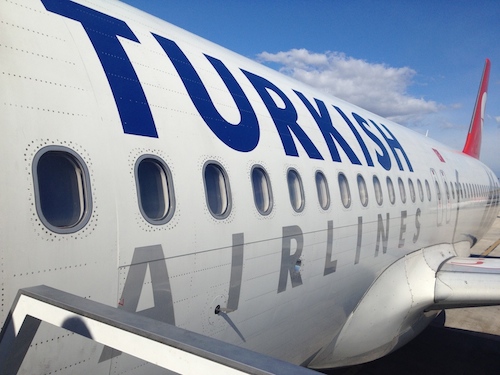By Libya Herald staff.
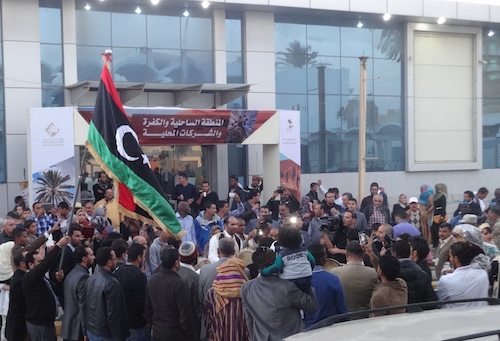
Tripoli, 21 December 2014:
Libya’s date-growers and sellers converged in Tripoli last week for a four-day extravaganza featuring some . . .[restrict]of the hundreds of date varieties that Libya boasts. Although billed as an international event, the capital’s second Date Fair was a very local affair, but one that thousands of local people flocked to enjoy.
“This has been a great success and many people, both sellers and visitors, asked us to extend the fair beyond the four days,” head of the Libyan Export Promotion Centre Saied S Kalla told the Libya Herald. “Because of the political situation this year it has been a purely Libyan fair but we still had almost 300 participants.”
One display was Tripoli-based, from communities in Souq Juma and Tajoura, under the local NGO 25 February. “In 1963 there were many date trees and groves in these areas but now there are very few left because there have been so many building projects,” Dr Majda Moussa explained. “The ones that are left are usually in people’s gardens – I have six.” She added that even this small number of trees produced far more dates than one family could consume. “Every season, I give dates as presents and I also sell some – all Libyans look forward to September!”
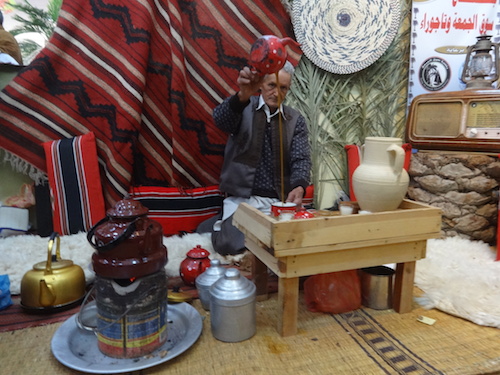
Many of the growers and sellers came from the country’s oases, the site of the most expansive date groves. Oil engineer Hasan said he took time off from his job at the oil fields to bring five different varieties of date from his family’s farm in Zellah to Tripoli. The turn-out was much better than expected, he said, with the fair particularly busy on the first and last days.
Mohamed from Derj, near Ghadames, said he was representing different farmers from his local community. “We don’t have any factories or special packaging, but we do have a lot of dates,” he said. “We are here just to show people what we have.”
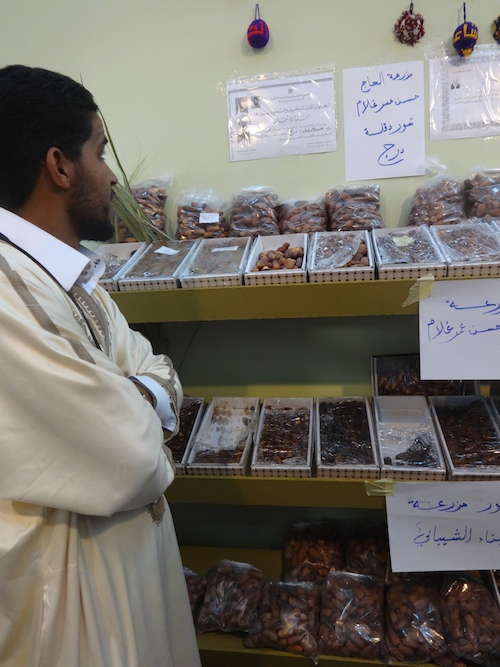
Members of the Tawerghan communities living in camps around Tripoli had set up a beautiful, colourful tent outside the venue. Empty bowls and baskets were laid out in a moving display reminding those attending of the Tawerghans’ continued plight as internally displaced people (IPS). Each vessel contained only a piece of paper, upon which was written the name of a type of date grown locally to Tawergha with a large question mark inked in red.
“The question mark is because we can’t bring our dates here to this fair because we are living in camps as IDPs,” representative from the Airport Road camp and chairman of the Al-Saber Association Mabruk Eswesi told the Libya Herald. He explained that there were many date-palm groves around Tawergha, featuring almost one million trees of many different varieties. “We don’t know what has happened to our date-palm groves, but now every year we buy small trees from the market and plant them in our camps.”
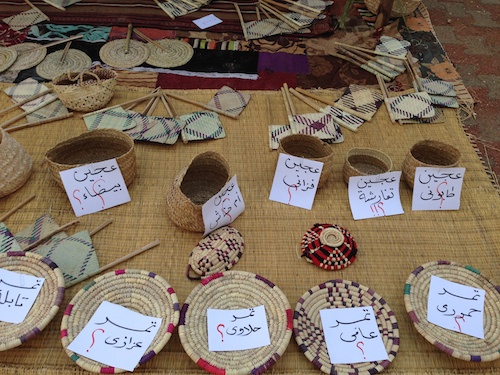
Although the outside location of the Tawergha camp seemed to be a metaphor for the plight of the people themselves, Saied S Kalla said it was purely because they had not pre-booked a space at the fair. “They came on the opening day, otherwise they would be inside,” he said. “You can’t separate different parts of Libya because we can only be as one.”
“We like it, here outside, because the weather is good and people can stop by and watch some of our traditions,” Eswesi said. The tent offered traditionally-brewed tea and a range of craft items, handmade in the camps, including fans and bowls made from date fronds, which sold well.
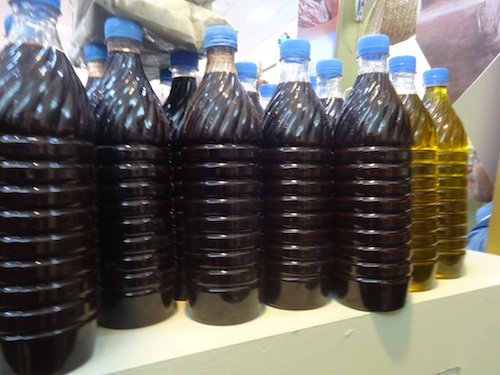
Another very popular stand was one from Khoms, which lured visitors with a large bowl of dates and another of besisa. “This is an old style of Libyan food,” Khoms representative and head of the An-Nawaras Association Housain Mustafa said, adding that the area around Khoms has more than 30,000 date palms.
Some sellers voiced disappointment at the lack of international presence but, on the whole, the fair was a vibrant and buzzing affair. As one visitor said: “It’s not really an international fair, it’s a local one, but it’s still really amazing to see what Libya produces.”
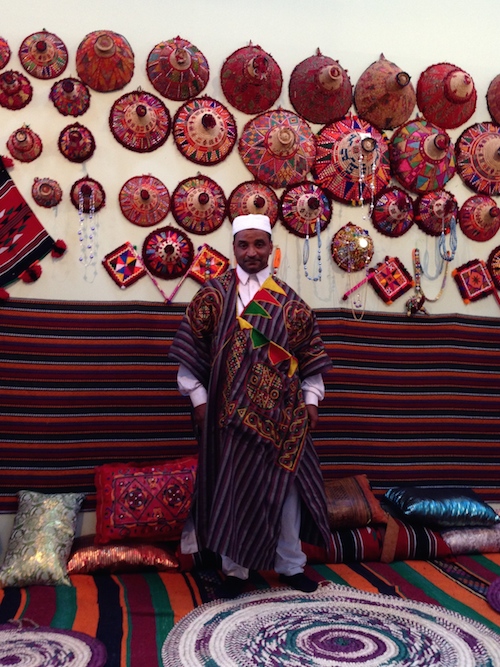
The Date Fair was originally scheduled for October but was postponed due to unfolding events in the capital. “We decided to go ahead in December even though we realised there would not be international participation, because dates have important potential for the future of the economy,” Kalla said. The Libyan Export Promotion Centre aims to find resources other than oil that can help diversify the economy and dates are one of our main focusses, along with olives, honey and fish.”
As the sellers packed up their stalls, while visitors wended a slow way across the floor – sticky with date sugar – to the exit, they were mostly packing away empty boxes, a testament to the success of the fair.

